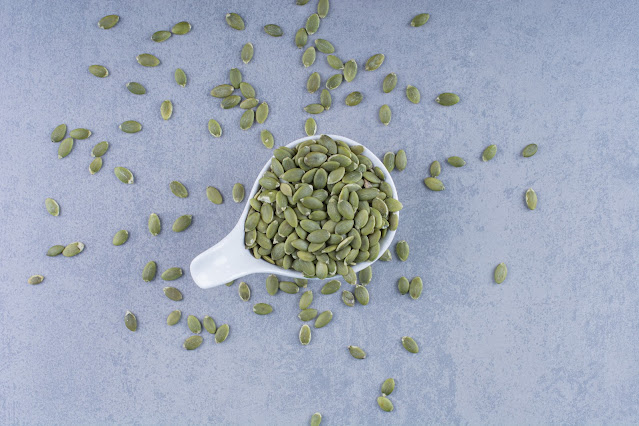Beets are a nutrient-dense vegetable enjoyed for generations because of their striking color, distinct flavor, and many health advantages. Beets are a wonderful addition to any diet since they provide many health benefits, both normal and sugar. However, "Is sugar beet good for weight loss?" is often asked. In this post, we'll examine this and go over nine amazing health advantages of beets.
1. Rich in Nutrients
Beets are rich in many different vitamins and minerals and are quite nutrient-dense. In only one cup of cooked form, they are an excellent source of folate, vitamin C, potassium, magnesium, and iron. Potassium aids in blood pressure regulation, whereas folate is necessary for cell development and function. Beets are a potent complement to a well-balanced diet because of the combination of these elements.
2. Encourages Heart Health
Because of their high nitrate content, beets are believed to provide heart health benefits. Nitric oxide, which is produced when nitrates are eaten, helps relax and widen blood vessels, improving blood flow and lowering blood pressure. Regular beet eating has been linked to a lower risk of cardiovascular conditions such as strokes and heart attacks.
3. Improves Athletic Performance
Look no further than beets if you're searching for a natural performance booster. It has been demonstrated that the nitrates in beets enhance oxygen intake and boost endurance when exercising. Beet juice or supplements are popular among athletes who want to improve their performance and endurance. Beets can provide you a competitive advantage in any sport, whether you run or ride.
4. Encourages Healthy Digestion
One of the best foods for fiber, which is necessary for a healthy digestive system, is beets. By nourishing good gut bacteria, fiber maintains intestinal regularity, helps avoid constipation, and improves gut health. A diet high in vegetables, such as beets, is high in fiber and has been associated with a decreased incidence of digestive problems such as diverticulitis and irritable bowel syndrome (IBS).
5. Supports Detoxification
Supporting the body's natural detoxifying processes is one of the lesser-known advantages of beets. The pigments called betalains, which are found in beets, have anti-inflammatory and antioxidant qualities. These chemicals support general health and well-being by aiding the liver in the removal of toxins and shielding the body from dangerous substances.
6. Anti-Inflammatory Properties
Numerous medical conditions, including cancer, diabetes, and heart disease, are caused by chronic inflammation. Several substances found in beets, such as betalains, have strong anti-inflammatory properties. Regular beet eating may help minimize the risk of chronic illnesses by reducing inflammation in the body.
7. Enhances Mental Performance
Maintaining good brain function becomes more important as we become older. Because of its capacity to enhance blood flow, particularly to the brain, beets can promote cognitive wellness. Nitric oxide, which is generated by the nitrates in beets, improves circulation and may shield against diseases like dementia and age-related cognitive decline.
8. Promotes Weight Loss
Because they are high in fiber and low in calories, beets are a great complement to any diet plan aimed at losing weight. Because fiber makes you feel fuller for longer, it lowers your overall calorie consumption and helps you control your weight. Although the main purpose of sugar beets is for their sugar, regular consumption of beetroot or beet juice, which has far less sugar, can help with weight reduction when included in a diet that is well-balanced and low in calories.
While entire sugar beets are not usually consumed in the same manner as ordinary beetroot, items made from sugar beets, such as beet sugar, can be included in a diet plan for weight reduction if taken in moderation. For weight control, however, concentrating on whole beets with all of their fiber intact will produce superior benefits.
9. Supports Healthy Skin
Beets are good for your skin as well. Beets' strong antioxidant content helps shield your skin from harmful environmental factors like pollution and UV radiation, which can hasten the aging process of your skin. Beets also contain vitamin C, which aids in the formation of collagen and results in skin that is firmer and younger-looking.
Is Sugar Beet Good for Weight Loss?
The response is more complex. The raw sugar beet is frequently processed to make sugar, which has a high-calorie content and, if ingested in excess, can cause weight gain. Nonetheless, raw beets—especially beetroot—have a high fiber content, and few calories, and can be a useful component of a diet. If you want to lose weight, go for beet juice or whole beetroot instead of sugar beet derivatives.
How to Include Beets in Your Diet
Beets are easy and flexible to use in your meals:
- Roasted beets: Serve as a side dish or added to salads.
- Beet juice: For a nutrient-rich beverage, blend raw beets with other fruits and vegetables.
- Beet chips: A crispy, healthful substitute for snacks.
- Beetroot hummus: For a colorful dip, blend cooked beets with chickpeas.
Beets for Wellness and Weight Control
Beets have several health advantages, including helping with weight loss, enhancing digestion, and promoting heart health. Because of its involvement in the manufacturing of sugar, sugar beets are not the best food for weight reduction; nevertheless, eating whole beets can help you maintain your fitness and health objectives. Beets are a great complement to any diet since they are high in nutrients, low in calories, and rich in fiber. Beets may be eaten raw, juiced, or added to salads for a tasty and easy approach to improving your health.
















%20Causes,%20Symptoms,%20and%20Treatment.jpg)

